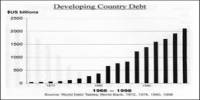In the day when the stock markets are open, an ETF (exchange-traded fund) is purchased and sold like company stock. This is sold like a portfolio at fluctuating prices during the business day. ETFs are similar to mutual funds in several ways; however, they are listed during the day on exchanges and ETF shares trade much like ordinary stocks.
ETFs are considered to be low-risk investments because they are low-cost and hold a basket of stocks or other securities, increasing diversification. Innovative ETF structures allow investors to short markets, to gain leverage, and to avoid short-term capital gains taxes.
There are many advantages and disadvantages to investing in Exchange-Traded Funds (ETFs), including the following:
Advantages of ETFs –
- ETFs typically have far lower expenditure ratios than a comparable mutual fund. That is due in part to their exchange-traded nature, which puts traditional costs on the traders or the exchange as opposed to a mutual fund, which has to bear the net costs.
- Many ETFs are indexed based; index-based ETFs are required to publish their holdings daily.
- An ETF can track a broader range of stocks, or perhaps try to mimic the returns of a rustic or a group of nations.
- ETFs also contributed to the emergence of asset groups that had previously been difficult for individual retail investors to enter, such as emerging-market equities and bonds, gold bullion or other assets, and the foreign exchange (forex) sector and cryptocurrencies.
- Although the ETF might give the holder the advantages of diversification, it’s the trading liquidity of equity.
- ETFs typically generate a lower level of capital gain distributions relative to actively managed mutual funds.
- ETFs, which are managed passively, have much lower investment ratios compared to the actively managed funds which appear to be mutual funds.
- ETFs usually publish their regular portfolios, which tends to keep the investor more aware of exactly how their capital is being spent.
- ETFs can be more tax-efficient than mutual funds. When an ETF buys or sells shares, it’s considered an in-kind redemption and does not result in a tax charge.
- ETFs can overcome rules that prohibit selling and realizing (claiming) a loss on a security if very similar security is bought within a 30-day window.
Disadvantages of ETFs –
- If someone regularly spends small sums, there might be lower-cost options investing directly in a no-load fund with a fund manager.
- ETFs carry transaction costs that ought to be carefully considered within the process of portfolio creations like Bid/Ask spreads and commissions.
- A lack of exposure to mid and small-cap companies could leave potential growth opportunities out of the reach of ETF investors.
- Some thinly traded ETFs have wide bid/ask spreads, which suggests investors are buying at the high price of the spread and selling at the low price of the spread.
- While ETFs generally track their underlying index fairly well, technical issues can create discrepancies.
- Longer-term investors could have a time horizon of 10 to fifteen years so that they might not get pleasure from the intraday pricing changes.
- ETF sales are not settled for 2 days following a transaction; that means as the seller, investors funds from an ETF sale aren’t technically available to reinvest for 2 days.
- There are dividend-paying ETFs, but the yields might not be as high as owning a high-yielding stock or group of stocks.
- A leveraged ETF is a fund that uses financial derivatives and debt to amplify the returns of an underlying index.
ETFs can be used for gaining access to almost every world market or business field. Individuals may use the stock index and bond ETFs to invest their funds in a traditional manner, and adjust the distribution according to changes in their risk appetite and goals. They are like stocks within the way they trade but can even be compared to more broad investments, or perhaps entire indexes, in their price movements. They need many advantages, especially compared to other managed funds like mutual funds.
Information Sources:
















